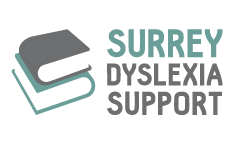What is Dyslexia?
Dyslexia is a ‘learning difficulty that primarily affects the skills involved in accurate and fluent word reading and spelling’ (British Dyslexia Association, 2009). Dyslexia affects the way information is processed, stored and retrieved. Difficulties with memory, speed of processing, time perception, organisation and sequencing can also be found.
Dyslexia is a genetic disorder and can occur across a range of intellectual abilities and can vary in severity. People with dyslexia often have strong visual, creative and problem solving skills and effective tutoring can help people to use their strengths to overcome their weaknesses.
Co-occuring Difficulties
Dyslexia can coexist with other disorders such as dyspraxia (difficulty with coordination of movements), dyscalculia (difficulty with acquiring basic maths skills) and Attention Deficit Hyperactivity Disorder (affecting concentration and attention). Children who have difficulty with saying what they want to, even though they have ideas, may have a specific language impairment. Specific visual difficulties such as blurry letters and words which appear to move on the page may be due to Irlen Syndrome which requires a separate diagnosis so appropriate support can be provided.
